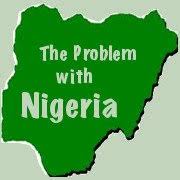Introduction
There are a number of theories rivaling each other in their attempts to explain the migratory origin of the Igbo. The most popular one seems to be the account that the Igbo migrated from Israel and this is why they are often referred to as the Jews of Africa. While scholars promoting this view generally appeal to the cultural similarities between Igbos and Jews (including early naming ceremony, circumcision (Omugo in Igbo), industry and independence), the strongest evidence in its favour is the sacking of Palestine in AD 70 by Titus which led to the scattering of the Jews all over the world. This account represents the Igbo as one of the missing tribe of Israel.
Beside this household account of Igbo origin and migration, there are several other theories. However, of all these theories, the historical theory is seen as proposing the most cogent account of Igbo origin.
The Historical Hypothesis
The historical hypothesis links Igbo origin and migration to the Stone Age. It hinges its account on the archeological discoveries that metamorphosed in three stages of autochthony, internal migration and external migration.
The autochthony hypothesis asserts that the Igbo are aboriginal. This follows the conviction that the Igbo inhabited their current location since the beginning of the human race. Some studies maintain that historical records and oral traditions corroborate this position that the Igbo never lived anywhere outside the present Igboland (Hartle, 1967). This hypothesis derives its strength from the archeological findings traced to the Eze Nri Myth spanning two thousand years and more (Afigbo, 1981). The autochthonous narrative of Igbo creation is directly derived from the Eze Nri, the acclaimed founder of the Igbo race, who, as the proponents account, was instituted by Chineke (God the creator). This view remains popular even in the light of other existing thoughts (Isichei, 1967). An alternate version, known as ‘Internal migration’ however, emerged with a different narrative.
The Internal Migration hypothesis posits that Igbo people moved from their original homeland of Niger-Benue confluence to other parts of Igbo land. The movement started with the migration of Igbo hunters and gatherers that occupied the Nsukka–Okigwe stretch. The account is supported by archeological findings and scientific evidences. According to Onwuejiogwu,
…there have been four archeological findings: the Ugwuele, Afikpo, Nsukka and Igbo-Ukwu which have become more relevant. These sites have produced abundant scientific evidence of the fact that at least between 100,000 BC and 5000 BC, man has started his cultural drama in what is referred to as ‘ theatre of Igbo land (Onwuejiogwu, 1987, 8 ).
The report reiterates that upper dates of Ugwuele overlapped with lower dates of Afikpo and Nsukka with similar pottery types (Onwuejiogwu,1987, 9). From all indication, and inclination to these discoveries the significant conclusion is that the Igbo have migrated from the northern axis, with the possibility of coming from outside Nigeria (Onwuejiogwu, 1987, 11). As the internal migration narrative is justified through related cultural artifacts representing livelihood from northern to southern Nigeria, it has been challenged by the Middle East origin account, otherwise known as External migration hypothesis.
The External Migration hypothesis links Igbo origin to the Middle East. The hypothesis claims the migration of the Igbo from the Jewish stock, dating as far back as 1870 BC. As noted by Talbot “the Nubian War of Amenembat or the conquest of Egypt by Hysos is believed to have led some Egyptians to settle in Yoruba country of Oyo and in certain Igbo sub-tribal areas” (Talbot, 1926, 19). Other accounts that support Igbo migration from Middle East include the study of Innocent Okorie, which argues that there are certain customs that rather point to the Leviticus influence on the culture of the Igbo, especially in the practice of circumcision and sacrifices (Okorie, 1983, 9-8).
These three historical hypotheses of Igbo origin and migration all sound convincing, as each is authenticated with evidences that make it acceptable. As it stands, the Igbo can come from the three or even more sources through waves of migration. Therefore there may be some autochthonous Igbo who were later joined by others. This is more so because there is no proof yet that all the Igbo people are from one ancestor or stock.











